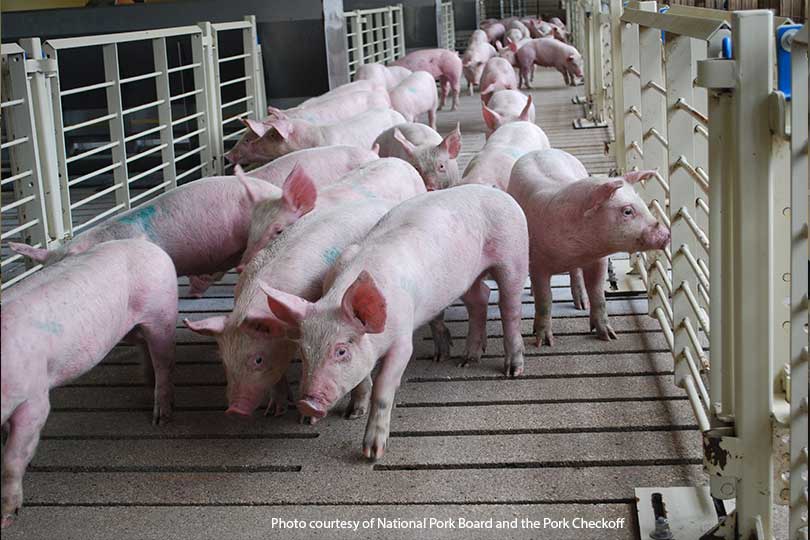By Jessica Domel
Multimedia Reporter
Tens of thousands of hogs and pigs have been culled in China following more than 40 outbreaks of the highly-contagious African Swine Fever (ASF) in 11 regions.
The disease has been confirmed in parts of Africa, Belgium, China, Ukraine, Hungary, Moldova, Romania, Poland, Latvia and Russia.
In mid-October, France began building a fence to prevent potentially-infected wild boar from carrying the disease across the border from Belgium.
Although the U.S. is an ocean away, U.S. pork and animal health officials are also taking action.
“Texas Animal Health Commission (TAHC) and USDA (U.S. Department of Agriculture) Veterinary Services, as well as the pork industry, are all keeping a watchful eye on the outbreak in China,” Dr. Susan Rollo, state epidemiologist, said. “While there may not be a direct disease threat to Texas livestock farmers, it is appropriate that everyone takes the necessary precautions to protect the United States swine population by practicing good viral security and notifying their veterinarian or animal health official of anything suspicious.”
TAHC and USDA are concerned about ASF because the United States has historically seen diseases come from China, including the 2013 porcine epidemic diarrhea virus.
“That disease did get into the pork industry through contaminated feed products,” Rollo said.
As new cases of ASF are confirmed, Chinese officials are eliminating swine that may be infected, quarantining affected areas, restricting movement through ASF-positive provinces and have shut down some live markets.
In the U.S., USDA’s Animal and Plant Health Inspection Service (APHIS) animal health regulations prohibit the import of live pigs and untreated products originating from countries or regions where ASF has been confirmed.
“This includes contaminated clothing, equipment or feed from unscrupulous providers. Also, there’s a waste- feeding swine health protection act that has been in place for decades that controls the disposal of all international garbage from ships, airlines and international conveyances under USDA supervision,” Rollo said.
Early detection is key to controlling and eradicating diseases like ASF quickly. TAHC and USDA rely on producers and veterinarians to report suspected cases of any disease to state and federal animal health officials, according to Rollo.
In addition, increased on-farm biosecurity is the best form of protection, Rollo said.
Disinfectant specifically labeled for ASF is recommended, along with regularly cleaning and disinfecting facilities and equipment.
A fact sheet from USDA with biosecurity protocols is available at http://bit.ly/APHIS_ASF.
If ASF is found in the U.S., it could have severe animal health and economic consequences, including export bans.
“Movement restrictions and depopulation, as well as strict control measures, will be necessary to eradicate the disease,” Rollo said. “The potential impact of this virus in the U.S. could vary depending on the geographic location and scope of the outbreak.”
If the disease is found in Texas, where there is a large wild pig population, controlling ASF will be difficult.
The ASF virus is found in the blood, tissue, secretions and excretions of sick animals and carcasses. It can also be found in infected ticks or in the environment.
The virus can be transmitted through: direct contact with infected animals or meat, biting flies or ticks, through indirect contact with feed containing infected pork products and through contact with contaminated objects like clothing, vehicles, fencing and waste.
It is not communicable to humans and does not affect food safety, according to TAHC.
Symptoms of ASF vary, but may include a high fever, decreased appetite and blotchy skin and internal organs. The incubation period is three to 15 days after direct contact, but it can be less than five days after exposure to an infected tick.
Death typically occurs within two to 10 days. Mortality rates may be as high as 100 percent.
No vaccine exists currently for ASF, but USDA is accepting comments on a proposal to grant an exclusive license to Zoetis on two patents that will allow them to develop a vaccin

